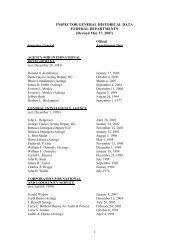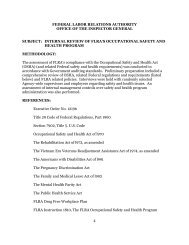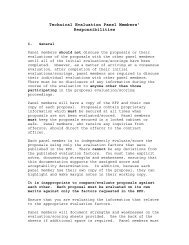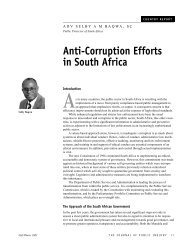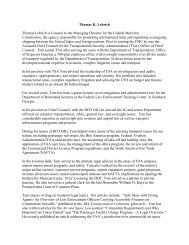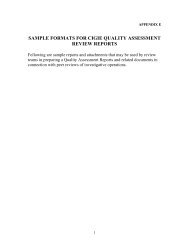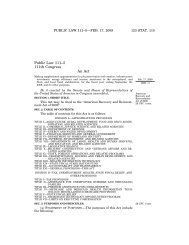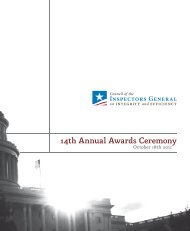GAO-12-208G, Designing Evaluations: 2012 Revision
GAO-12-208G, Designing Evaluations: 2012 Revision
GAO-12-208G, Designing Evaluations: 2012 Revision
You also want an ePaper? Increase the reach of your titles
YUMPU automatically turns print PDFs into web optimized ePapers that Google loves.
Ensure That Questions Are<br />
Appropriate to the<br />
Program’s Stage of<br />
Maturity<br />
Chapter 2: Defining the Evaluation’s Scope<br />
the most important questions that can be feasibly addressed. The<br />
evaluator can use the program’s logic model to organize the discussion<br />
systematically to learn whether the requester’s concerns focus on how<br />
the program is operating or whether it is achieving its intended results or<br />
producing unintended effects (either positive or negative). It is also<br />
important to ensure that the evaluation question is well-matched to the<br />
program’s purpose and strategies. For example, if a program is targeted<br />
to meet the housing needs of low-income residents, then it would be<br />
inappropriate to judge its effectiveness by whether the housing needs of<br />
all residents were met.<br />
It is important to learn whether the requester has a specific set of criteria<br />
or expectations in mind to judge the program against and whether<br />
questions pertain to the entire program or just certain components. A<br />
general request to “assess a program’s effectiveness” should be clarified<br />
and rephrased as a more specific question that ensures a common<br />
understanding of the program’s desired outcomes, such as, “Has the<br />
program led to increased access to health care for low-income<br />
residents?” or “Has it led to lower incidence of health problems for those<br />
residents?” It is also important to distinguish questions about the overall<br />
effectiveness of a nationwide program from those limited to a few sites<br />
that warrant study because they are especially promising or problematic.<br />
The difference is extremely important for evaluation scope and design,<br />
and attention to the difference allows the evaluator to help make the study<br />
useful to the requester.<br />
Although the feasibility of the evaluation questions will continue to be<br />
assessed during the design phase, an evaluator should gain agreement<br />
on these questions before completing the design of the evaluation. If<br />
program stakeholders perceive the questions as objective and reflecting<br />
their key concerns, they will be more likely to find the evaluation results<br />
credible and persuasive and act on them.<br />
Different questions tend to be asked at different stages of program<br />
maturity and often reflect whether the purpose of the study is to assist<br />
program improvement or provide accountability. Three types of evaluation<br />
are defined by whether the focus is on the program’s operations or<br />
outcomes, or on the program’s causal link to the observed results. Of<br />
course, a single study may use different approaches to address multiple<br />
questions. (See table 1.)<br />
Page 14 <strong>GAO</strong>-<strong>12</strong>-<strong>208G</strong>



